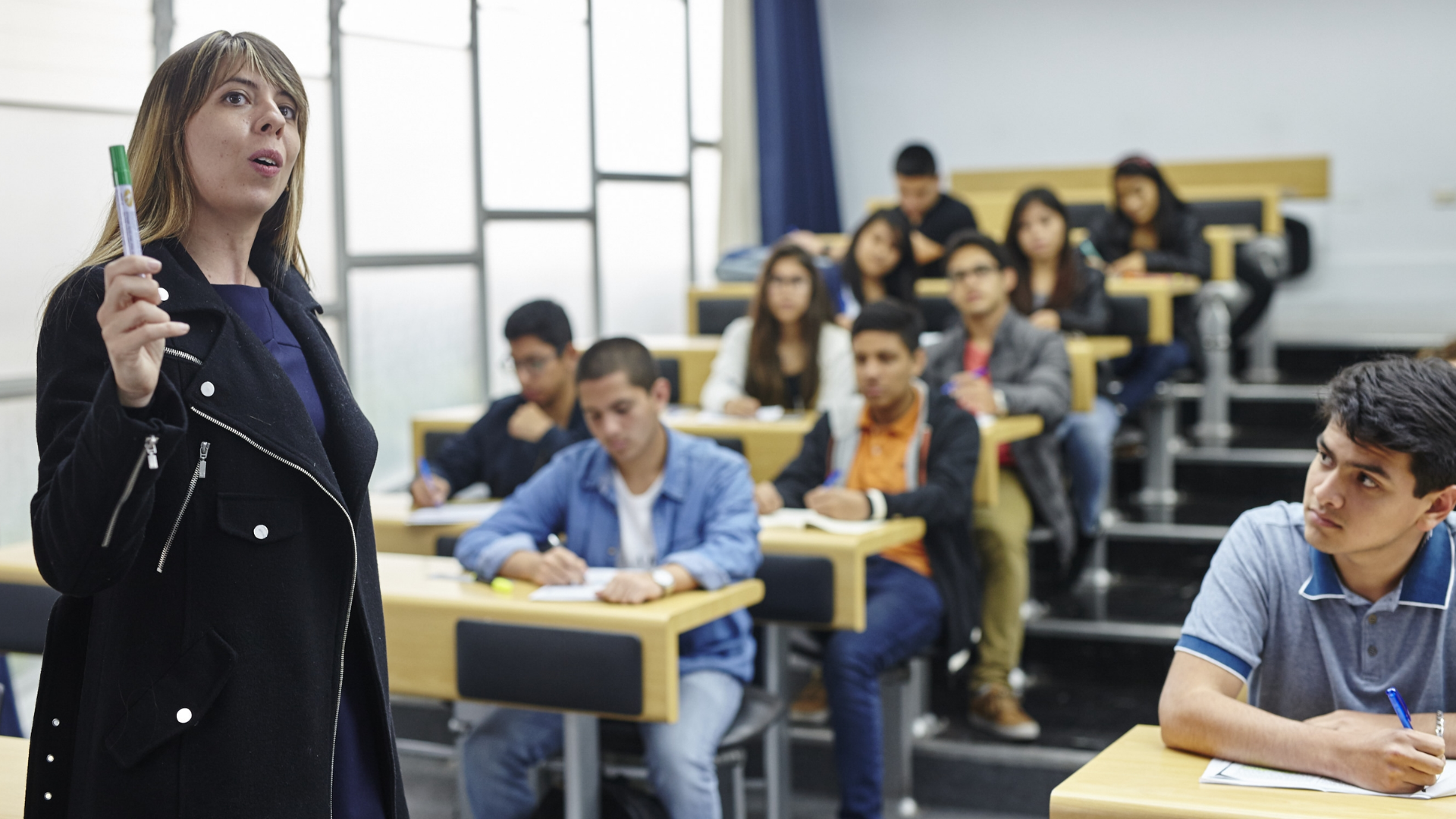I am sure I am not the first or the last person who has felt that his life has taken a 180-degree turn since he entered the PUCP. In my case, the university gave me the opportunity to interact with many people from different social classes and beliefs and to learn to live with everyone in the same space.
I had not experienced this before, coming from a conservative Christian school where I had been for more than 10 years and raised in a Catholic family. Evidently, I had been in a rather closed space, with the usual friends and raised under a homogeneous thinking in which I did not often feel that I was allowed to question.
In contrast, at university, it was quite the opposite, especially because we were given the freedom to learn about and explore various topics through the infinite amount of readings we were required to read in General Letters. I believe that this new knowledge that we have access to at the university is extremely important because we begin to understand reality and it is where we begin to train ourselves to have the tools to be able to influence it with proposals for change and improve it. One of the ways of advocacy from the academy is through research.
I believe that learning to do research has a profound personal and professional impact, because it empowers us and gives us the possibility of exercising active citizenship, since we are able to produce information from our role as students that ends up being socially relevant. This reflection arose from my transition from high school to university, where I felt that there was a change in my civic attitude from passive to active. I do not believe that my civic attitude became active immediately when I entered the university, but rather when I learned to investigate and even more, when I began to be interested in making it visible or, in the best of cases, putting it into action.
I am sure that the university would save us students a lot of trouble when it comes to research, if the perspective on it were changed, and not only that, if it would provide the necessary tools for this perspective to be fulfilled. I believe that it would be a different story if we begin to understand research as an opportunity in which students can begin to cook our own personal initiatives and proposals for change on the Peruvian reality. It is well known that the research process is demanding and complex; therefore, it is understandable that we, the university students, do not feel attracted to it at first; especially when we do not have the opportunity that our research can transcend the classroom and can be useful in society.
The research spirit that is present in every student can be strengthened if we are given the opportunity to make visible and put into practice everything we have researched, to which we have dedicated a lot of time throughout our career. It would be extremely useful, from the first cycle at the university, as a starting point, to promote its visibility in a repository of the course; to facilitate access to academic journals or to give us the opportunity to be part of research groups, which would improve our research skills and where our academic work would be taken seriously. This is very important, that as students we feel part of creating knowledge that is ultimately useful to build a better society and not remain just a speech.
Citizenship is exercised and learned in daily life and in concrete social practices, that is, through participation in society. This is valid for everyone and especially for young people and adolescents. Participation is the central axis for the development of any human being: participation is a fundamental human need. [Participation occurs when the things one does make sense to the social community to which one belongs, thus contributing to its creation, and this happens only when one has presence, and one has presence when one participates, that is, when the things one does make sense to one” (Maturana, 1999). Social participation in turn generates identity, which is another fundamental human need (Max Neef, Elizalde and Hopenhayn, 1998, p. 54).
In this way, research constitutes a means to promote democracy, where we students can exercise our citizenship with proposals for change with positive social impact. I believe that understanding and carrying out research in this way can give students a sense of belonging and find a social meaning in their research, which would allow them to approach it with enjoyment and commitment. And with this, in the same way, it can encourage to strengthen the professional social commitment in the university students to create proposals that aim to build a better Peru.
Bibliography:
Comisión Económica para América Latina y el Caribe. (2001). Protagonismo juvenil en proyectos locales: Lecciones del Cono Sur. [Archivo PDF]. Santiago de Chile. Recuperado de:https://repositorio.cepal.org/bitstream/handle/11362/2263/1/S2001610_es.pdf
Institucional 15 [Fotografía], por Estudios Generales Letras PUCP, s/a, Web PUCP (https://facultad.pucp.edu.pe/generales-letras/enfoque-tematico-los-cursos-ofrecidos-2017-2/_mg_3271/).





